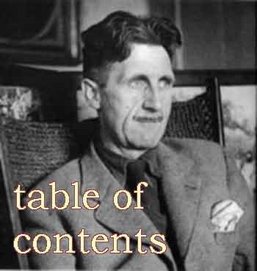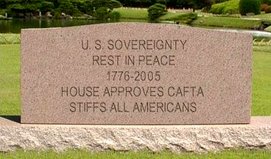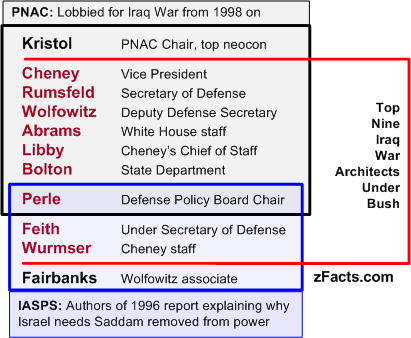My Reasons for the PardonsWilliam Jefferson Clinton - NY Times Opinion - February 18, 2001
CHAPPAQUA, N.Y. — Because of the intense scrutiny and criticism of the pardons of Marc Rich and his partner Pincus Green and because legitimate concerns have been raised, I want to explain what I did and why.
First, I want to make some general comments about pardons and commutations of sentences. Article II of the Constitution gives the president broad and unreviewable power to grant "Reprieves and Pardons" for all offenses against the United States. The Supreme Court has ruled that the pardon power is granted "[t]o the [president] . . ., and it is granted without limit" (United States v. Klein). Justice Oliver Wendell Holmes declared that "[a] pardon . . . is . . . the determination of the ultimate authority that the public welfare will be better served by [the pardon] . . ." (Biddle v. Perovich). A president may conclude a pardon or commutation is warranted for several reasons: the desire to restore full citizenship rights, including voting, to people who have served their sentences and lived within the law since; a belief that a sentence was excessive or unjust; personal circumstances that warrant compassion; or other unique circumstances.
The exercise of executive clemency is inherently controversial. The reason the framers of our Constitution vested this broad power in the Executive Branch was to assure that the president would have the freedom to do what he deemed to be the right thing, regardless of how unpopular a decision might be. Some of the uses of the power have been extremely controversial, such as President Washington's pardons of leaders of the Whiskey Rebellion, President Harding's commutation of the sentence of Eugene Debs, President Nixon's commutation of the sentence of James Hoffa, President Ford's pardon of former President Nixon, President Carter's pardon of Vietnam War draft resisters, and President Bush's 1992 pardon of six Iran-contra defendants, including former Defense Secretary Weinberger, which assured the end of that investigation.
On Jan. 20, 2001, I granted 140 pardons and issued 36 commutations. During my presidency, I issued a total of approximately 450 pardons and commutations, compared to 406 issued by President Reagan during his two terms. During his four years, President Carter issued 566 pardons and commutations, while in the same length of time President Bush granted 77. President Ford issued 409 during the slightly more than two years he was president.
The vast majority of my Jan. 20 pardons and reprieves went to people who are not well known. Some had been sentenced pursuant to mandatory-sentencing drug laws, and I felt that they had served long enough, given the particular circumstances of the individual cases. Many of these were first-time nonviolent offenders with no previous criminal records; in some cases, codefendants had received significantly shorter sentences. At the attorney general's request, I commuted one death sentence because the defendant's principal accuser later changed his testimony, casting doubt on the defendant's guilt. In some cases, I granted pardons because I felt the individuals had been unfairly treated and punished pursuant to the Independent Counsel statute then in existence. The remainder of the pardons and commutations were granted for a wide variety of fact-based reasons, but the common denominator was that the cases, like that of Patricia Hearst, seemed to me deserving of executive clemency. Overwhelmingly, the pardons went to people who had been convicted and served their time, so the impact of the pardon was principally to restore the person's civil rights. Many of these, including some of the more controversial, had vigorous bipartisan support.
The pardons that have attracted the most criticism have been the pardons of Marc Rich and Pincus Green, who were indicted in 1983 on charges of racketeering and mail and wire fraud, arising out of their oil business.
Ordinarily, I would have denied pardons in this case simply because these men did not return to the United States to face the charges against them. However, I decided to grant the pardons in this unusual case for the following legal and foreign policy reasons:
(1) I understood that the other oil companies that had structured transactions like those on which Mr. Rich and Mr. Green were indicted were instead sued civilly by the government;
(2) I was informed that, in 1985, in a related case against a trading partner of Mr. Rich and Mr. Green, the Energy Department, which was responsible for enforcing the governing law, found that the manner in which the Rich/Green companies had accounted for these transactions was proper;
(3) two highly regarded tax experts, Bernard Wolfman of Harvard Law School and Martin Ginsburg of Georgetown University Law Center, reviewed the transactions in question and concluded that the companies "were correct in their U.S. income tax treatment of all the items in question, and [that] there was no unreported federal income or additional tax liability attributable to any of the [challenged] transactions";
(4) in order to settle the government's case against them, the two men's companies had paid approximately $200 million in fines, penalties and taxes, most of which might not even have been warranted under the Wolfman/Ginsburg analysis that the companies had followed the law and correctly reported their income;
(5) the Justice Department in 1989 rejected the use of racketeering statutes in tax cases like this one, a position that The Wall Street Journal editorial page, among others, agreed with at the time;
(6) it was my understanding that Deputy Attorney General Eric Holder's position on the pardon application was "neutral, leaning for";
(7) the case for the pardons was reviewed and advocated not only by my former White House counsel Jack Quinn but also by three distinguished Republican attorneys: Leonard Garment, a former Nixon White House official; William Bradford Reynolds, a former high-ranking official in the Reagan Justice Department; and Lewis Libby, now Vice President Cheney's chief of staff;
(8) finally, and importantly, many present and former high-ranking Israeli officials of both major political parties and leaders of Jewish communities in America and Europe urged the pardon of Mr. Rich because of his contributions and services to Israeli charitable causes, to the Mossad's efforts to rescue and evacuate Jews from hostile countries, and to the peace process through sponsorship of education and health programs in Gaza and the West Bank.
While I was troubled by the criminalization of the charges against Mr. Rich and Mr. Green, I also wanted to assure the government's ability to pursue any Energy Department, civil tax or other charges that might be available and warranted. I knew the men's companies had settled their disputes with the government, but I did not know what personal liability the individuals might still have for Energy Department or other violations.
Therefore, I required them to waive any and all defenses, including their statute of limitations defenses, to any civil charge the government might bring against them. Before I granted the pardons, I received from their lawyer a letter confirming that they "waive any and all defenses which could be raised to the lawful imposition of civil fines or penalties in connection with the actions and transactions alleged in the indictment against them pending in the Southern District of New York."
I believe my pardon decision was in the best interests of justice. If the two men were wrongly indicted in the first place, justice has been done. On the other hand, if they do personally owe money for Energy Department penalties, unpaid taxes or civil fines, they can now be sued civilly, as others in their position apparently were, a result that might not have been possible without the waiver, because civil statutes of limitations may have run while they were out of the United States.
While I was aware of and took into account the fact that the United States attorney for the Southern District of New York did not support these pardons, in retrospect, the process would have been better served had I sought her views directly. Further, I regret that Mr. Holder did not have more time to review the case. However, I believed the essential facts were before me, and I felt the foreign policy considerations and the legal arguments justified moving forward.
The suggestion that I granted the pardons because Mr. Rich's former wife, Denise, made political contributions and contributed to the Clinton library foundation is utterly false. There was absolutely no quid pro quo. Indeed, other friends and financial supporters sought pardons in cases which, after careful consideration based on the information available to me, I determined I could not grant.
In the last few months of my term, many, many people called, wrote or came up to me asking that I grant or at least consider granting clemency in various cases. These people included friends, family members, former spouses of applicants, supporters, acquaintances, Republican and Democratic members of Congress, journalists and total strangers. I believe that the president can and should listen to such requests, although they cannot determine his decision on the merits. There is only one prohibition: there can be no quid pro quo. And there certainly was not in this or any of the other pardons and commutations I granted.
I am accustomed to the rough and tumble of politics, but the accusations made against me in this case have been particularly painful because for eight years I worked hard to make good decisions for the American people. I want every American to know that, while you may disagree with this decision, I made it on the merits as I saw them, and I take full responsibility for it.
William Jefferson Clinton was the 42nd president of the United States.
See Also:• Clinton Pardon Statement Questioned• Mr. Clinton's Explanation• The First Grifters• US Jewry Slams Clinton for Blaming Rich Pardon on Jews
• Return to home page
Subscribe to:
Post Comments (Atom)







No comments:
Post a Comment